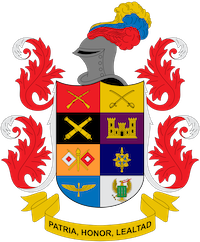Strategic Intelligence and Technology in Cornpetítíon for Intemational Power in the Twenty-First Century
Abstract
Economic and military power depends structurally on the capacity of States to develop scientific and technological platforms that allow them, on the one hand, to generate greater added value to their material production system and, on the other, to obtain a strategic advantage on the battlefield with the most advanced weaponry. From this perspective, it is relevant for the strategic intelligence agencies of the States to generate capabilities to identify the main scientific-technological trends, since these determine the international power structure. Thus, strategic intelligence plays a decisive role in the formulation of the foreign policy of the States, as a tool for the direction of the Grand Strategy of the powers in the 21st century.
Downloads
References
De Vergara, E. (2011). Definiciones de lo que entiende Estados Unidos por Seguridad Nacional. Documento No. 201 del Instituto de Estudios Estratégicos de Buenos Aires. Recuperado de http://www.ieeba.com.ar/docu/lnforme%20Estrategia%2ode%20Seguridad%20Nacional%20EEUU.%20Anexo%201.pdf
Fingar, T. (2012). lntelligence and Grand Strategy. Orbis Review of Standford University. Recuperado de http://fsi.stanford.edu/sites/default/files/Fingar_Intelligence_and_Grand_Strategy.pdf. https://doi.org/10.1016/j.orbis.2011.10.006
IEEE. (2003). Estudios sobre inteligencia: fundamentos para la seguridad internacional. Cuadernos de Estrategia No. 127. Recuperado de http://www.ieee.es/Galerias/fichero/cuadernos/CE-127.pdf
Jordán, J. (2014). ¿Qué factores impulsan la innovación militar? Análisis GESI No. 12. Recuperado de: http://www.seguridadinternacional.es/?q=es/content/%C2%BFqu%C3%A9-factores-impulsan-la-innovaci%C3%B3n-militar
Malik, M. (2012). Technopolitics: how technology shapes relations among nations. The Interface of Science, Technology and Security. Asia Pacific Center for Security Studies. Recuperado de http://www.apcss.org/wp-content/uploads/2012/12/Mohan-Malik.pdf.
McDowell, J. (2009). Strategic lntelligence: A Handbook for practitioners, Managers and Users. Maryland: Scarecrow Press.
Milano, C. (2013). Análisis e Inteligencia Estratégica. Revista AA Inteligencia, Vol. 6. Recuperado de http://www.aainteligencia.cl/wp-content/uploads/2013/03/NotasMilanoo6.pdf
Morgenthau, H. (S.F.). Otro gran debate: el interés nacional de Estados Unidos. Explicaciones sobre política exterior. Recuperado de http://biblio3.url.edu.gt/Publi/Libros/2013/Relaciones-EIpensamientoClasico/06.pdf
Murray, W (1997). Thinking About Revolutions in Military Affaírs. Joint Forces Quarterly, N° 16. Recuperado de http://usacac.army.mil/CAC2/MilitaryReview/Archives/English/MilitaryReview_20100630_art007.pdf. https://doi.org/10.21236/ADA354177
Patiño, Carlos. (2006). Posguerra Fría: acercamiento histórico y político. Medellín: Editorial Universidad Pontificia Bolivariana.
Patiño, Carlos. (2014). Guerras que cambiaron el mundo. Bogotá: Editorial Debate.
Paz, J. (2014). Inteligencia estratégica en América Latina. Revista lnsyde Ideas, Vol. 7. Recuperado de: http://insyde.org.mx/wp-content/uploads/2014/07/Inteligencia_Estategica_en_AL-Jose_Gabriel_Paz.pdf
Van Evera, S. (1999). Causes of War: Power and Roots of Conflict. Nueva York: Cornell University Press.
Vargas, J. (2012). Escenario geopolítico del siglo XXI. Bogotá: Editorial Escuela Superior de Guerra.













